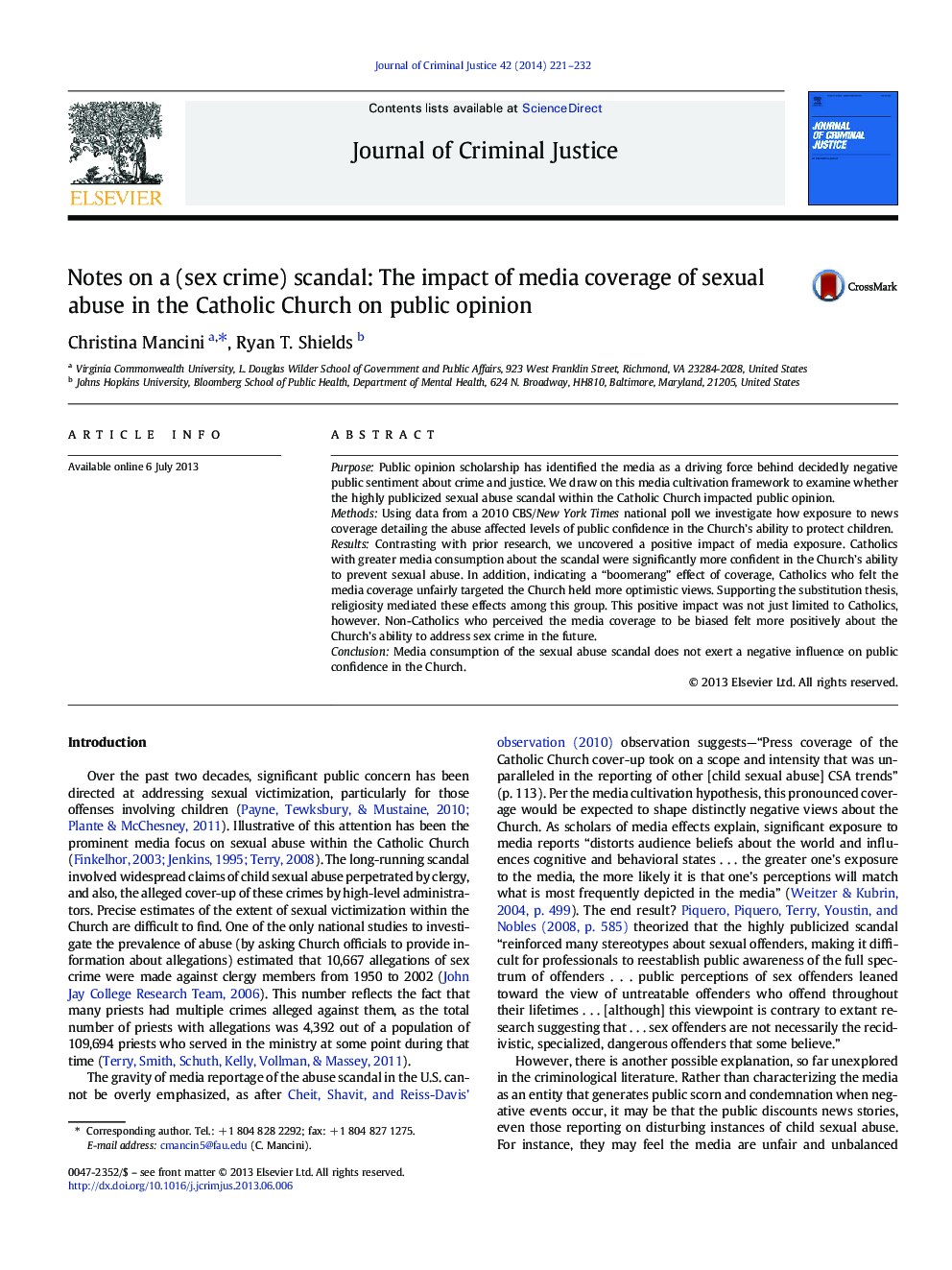| Article ID | Journal | Published Year | Pages | File Type |
|---|---|---|---|---|
| 882814 | Journal of Criminal Justice | 2014 | 12 Pages |
•Media exposure detailing sexual abuse affects views about the Catholic Church.•Catholics who followed the coverage were more confident in the Church.•Catholics who viewed the coverage as biased expressed more positive views about the Church.•Non-Catholics who perceived media bias believed the Church could prevent sex crime.•Religiosity mediated media exposure effects among Catholics.
PurposePublic opinion scholarship has identified the media as a driving force behind decidedly negative public sentiment about crime and justice. We draw on this media cultivation framework to examine whether the highly publicized sexual abuse scandal within the Catholic Church impacted public opinion.MethodsUsing data from a 2010 CBS/New York Times national poll we investigate how exposure to news coverage detailing the abuse affected levels of public confidence in the Church’s ability to protect children.ResultsContrasting with prior research, we uncovered a positive impact of media exposure. Catholics with greater media consumption about the scandal were significantly more confident in the Church’s ability to prevent sexual abuse. In addition, indicating a “boomerang” effect of coverage, Catholics who felt the media coverage unfairly targeted the Church held more optimistic views. Supporting the substitution thesis, religiosity mediated these effects among this group. This positive impact was not just limited to Catholics, however. Non-Catholics who perceived the media coverage to be biased felt more positively about the Church’s ability to address sex crime in the future.ConclusionMedia consumption of the sexual abuse scandal does not exert a negative influence on public confidence in the Church.
